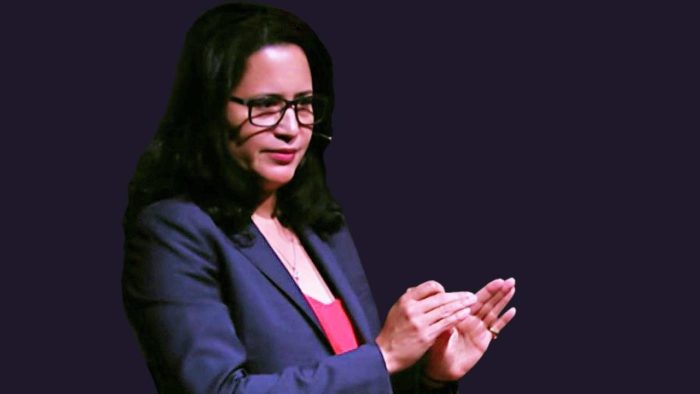NUR-SULTAN – The Development Bank of Kazakhstan (DBK) demonstrates one of the best examples of a women empowerment policy in the entire country. The bank’s proportion of women employed is 52 percent and the proportion of women in senior management positions is 58 percent, according to the bank’s human-resources department. The bank also includes women in the list of candidates for every selection including the Board of Directors, regardless of their specialization.

Marcia Elizabeth Favale
The Astana Times spoke with Marcia Elizabeth Favale, an investment banker, a lecturer at Said Business School of Oxford University, and Independent Director of DBK about how gender theory and hiring women over men improves a company’s productivity and the role of women in the corporate field of Kazakhstan.
Favale has had over twenty years working in the field of finance that include emerging market investment banking and portfolio management experience and extensive experience in Kazakhstan.
As an external expert and a woman with years of job experience in Kazakhstan, you probably have an opinion and understanding of the role of women in the corporate field. What is your experience and what are your observations?
– The Kazakh women that I have met during my many years in Kazakhstan have been well educated, dedicated, and professional. From an employer and human capital perspective, there should be no hesitation in employing Kazakh women, and supporting their career growth through mentorship and opportunities – as society does for men.
Employers that hold the belief that women should not be in high leadership positions should be aware that studies show that in fact having a gender diverse company improves productivity and profit. I can’t judge for the whole country and all regions, but the picture I see at the Development Bank makes me very happy. We promote women’s careers and continue to support each person’s growth.
I can confidently say that I work in an institution, which has never obstructed my and other independent directors’ proposals for the promotion of qualified women to senior positions.
During my tenure on the Board of Directors, we promoted Alma Aimurzina to Head of Compliance, who reports directly to the Board and Committees. The Head of the Audit Department is Bakyt Zhussupbekova who reports directly to the Board and other Committees, the Deputy Chairwoman of the Management Board for risks is Sandugash Kenzhebayeva, Botagoz Abisheva is a Managing Director responsible for attracting funding and has led the bank’s successful bond issuance, creating a successful international benchmark, the Corporate Secretary Aiman Kassenova is also a woman.
These women are role models not only for women but also for men. It is important that young and older men get used to working for women in leadership positions.
You as an entrepreneur yourself probably know, how does staff diversification affect the company’s productivity?
– It has been scientifically proven many times over that the diversification of staff increases productivity. If you hire people who think just like you, you have a very limited vision. The more diverse your people in leadership and the more people who are willing to become leaders, the more diverse your skill set, the higher your productivity, and the more stable your results.
Do you think this pandemic will change the approaches between top management and their employees to how they cooperate and communicate?
– When working with DBK remotely, I see high standards of professionalism. Employees are prepared and passionate, the information and discussions are as deep as they were in-person, the analytics and surveys are the same as they were at face-to-face meetings.
The issue of trust is important here. There is a difference between a manager who thinks his subordinates are only robots needed to perform technical tasks and an employer who sees their workers as professionals. If you are a professional and your team is professional and encouraged to excel, you don’t have to micromanage. If you haven’t hired a professional, that person won’t do the job. If your manager encourages his team to think as an entrepreneur in their role and act as a colleague to others, then you do not need to micromanage; which is not an efficient management approach.
How do you think the remote environment will affect the quality of people’s work?
– We are currently under this pandemic, with a lot of psychological pressure. Managers need to understand this.
An employee will behave in a remote environment just as responsibly as in the office. This is not about a remote environment. A professional is a professional. A person who pursues a goal will always execute.
Many people, including me, have attended online courses, and are still looking to develop skills, while some have not. I would like to add regarding management, that it’s extremely important for companies, institutions, and managers to create a psychologically safe environment.
I would like to note that the world is not standing still and all stereotypes and attitudes about gender, the relationship between an employee and employer are changing rapidly with it. The pandemic and its consequences only accelerate this process. I can confidently say that a woman with a child and a laptop on her lap can help lead your company to success no less than a man in a tie sitting on a leather chair.

